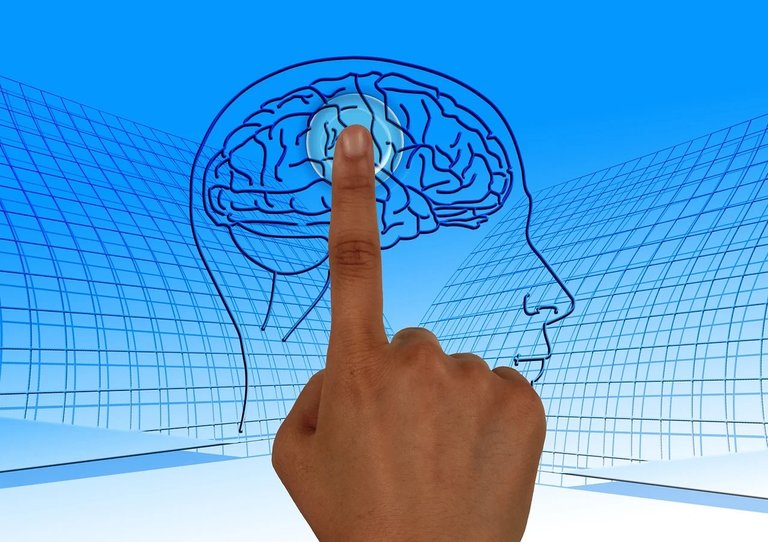Let's Discuss the Ethical Frontier of Neuroscience: Mind-Reading and More
Over the last hundred years, the field of neuroscience, which focuses on studying the brain and nervous system, has made remarkable progress. This progress has transformed our understanding of the incredibly complex human brain. As our knowledge deepens and technology advances, exciting and, at times, ethically challenging areas are emerging. One such area of interest is the idea of technology that can read our thoughts. This idea brings up interesting questions about our privacy, whether we agree to it, and how our minds work. In this article, I simply want to talk about the ethical aspects of neuroscience.

Mind-Reading Technology: A Glimpse into the Future
Imagine a world where your most personal thoughts, the private stuff you think in your head, can be figured out and shown on a screen. This might sound like something out of a science fiction movie, but progress in neuroscience is getting us closer to this happening. Brain-computer interfaces (BCIs) and a technology called functional magnetic resonance imaging (fMRI) are leading the way in this ethical area. They're helping researchers understand what's happening in our brains and maybe even what we're thinking and feeling.
Questions That Haunt Us
Privacy vs. Transparency: The most pressing ethical issue at the start is about invading people's personal privacy. We need to figure out how much say people should have over their brain data. If your thoughts could be seen without you agreeing to it, where should we set the boundary between being open and being too nosy?
Informed Consent: In the realm of medical research, informed consent is a cornerstone of ethical practice. When it comes to mind-reading technology, how can researchers ensure that participants fully understand the implications and potential risks? How do we obtain informed consent for reading someone's thoughts?
The Legal Quandary: What happens when the data extracted from your brain is used against you in a legal context? Can your thoughts be used as evidence in a court of law? The legal implications of mind-reading technology are profound and very complex.
The Pandora's Box of Manipulation: If we can read thoughts, can we also manipulate them? This leads to concerns about the potential for coercive practices, mind control, and even unauthorized alterations of an individual's mental state. How do we safeguard against such abuses?

The Ethical Tightrope of Neuroenhancement
Even though technology that can read thoughts brings up ethical worries, the field of neuroscience is also making progress in improving how our brains work. They're finding ways to make our thinking and mental health better. This could help with brain problems and make people smarter, but there are still some tough ethical dilemmas to deal with.
Access and Equity: If ways to make our brains work better become an option, who will be able to use them? Will it make a gap between those who have money and can make their brains better and those who can't? How can we make sure that everyone has a fair chance to benefit from it?
The Nature of Authenticity: Does enhancing our cognitive abilities through external means alter the essence of who we are? Is it ethical to change our fundamental nature, even if it's for the better? These questions touch on issues of identity and authenticity.
Unintended Consequences: What are the unintended consequences of neuroenhancement? For example, if we enhance memory, could it lead to unintended consequences like the distortion of personal narratives and even erasure of important experiences?
Regulatory Challenges: How can we make sure that the technologies to improve our brains are controlled properly so they're safe and work well? Finding the right balance between making things better and keeping them safe is also a big and difficult task.
Conclusion
The ethical landscape of neuroscience is a dynamic and evolving terrain, shaped by rapid advancements in technology and a deepening understanding of the human brain. Mind-reading technology and neuroenhancement hold great promise, but they also bring forth serious ethical questions that demand careful consideration. As we venture further into this exciting but complex areas, we must engage in ongoing dialogues, develop robust ethical frameworks, and strike a balance between progress and ethical responsibility. The future of neuroscience offers incredible potential, but it is in our hands to ensure that it remains a force for good, respecting the privacy, autonomy, and dignity of all individuals.
Reference and Further Studies:
Neuroethics: a modern context for ethics in neuroscience
The Brain and Ethics: An Introduction to Research in Neuroethics

Thanks for your contribution to the STEMsocial community. Feel free to join us on discord to get to know the rest of us!
Please consider delegating to the @stemsocial account (85% of the curation rewards are returned).
Thanks for including @stemsocial as a beneficiary, which gives you stronger support.
You're always welcome StemSocial, am happy to be part of this community